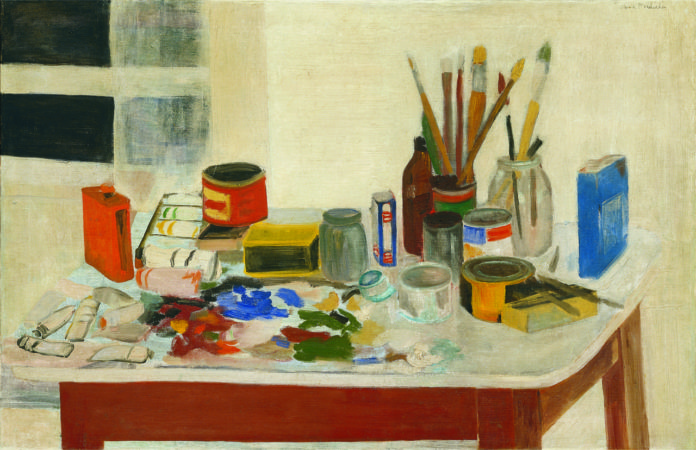
Jane Freilicher: 50s New York
April 18 through June 9, 2018
Paul Kasmin Gallery, New York
From the gallery:
Paul Kasmin Gallery is pleased to announce its debut fine art exhibition of paintings by Jane Freilicher (1924 – 2014), whose estate the gallery now represents. The presentation is the first to focus on Freilicher’s paintings from the 1950s; a body of work that critic Fairfield Porter termed “traditional and radical.” It will include early still lifes, portraits, and the studio views that elucidate her characteristically deft balance of interior and exterior. Hailing from the 1950s and painted within various studios in lower Manhattan, the works are evocative of a downtown milieu that has since come to represent the period’s golden age of spirited, improvisational artistic freedom. They articulate Freilicher’s enduring influence: her steadfast observation and intuitive realism are detectable within the work of a number of painters working today.
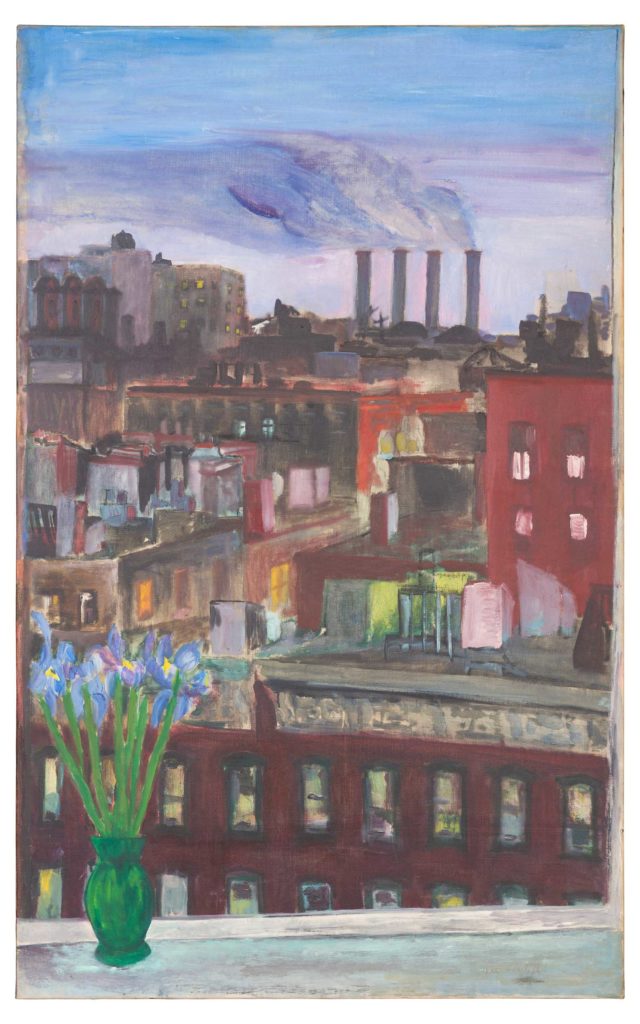
Over a six-decade career, Freilicher quietly painted in direct contrast to the heroic and gestured angst of Abstract Expressionism, the industrial starkness of Minimalism, and the broad sweeping cacophony of Pop. She painted in the same spirit and dedication as Bonnard and Matisse: a subtle and unrelenting observation of domestic life. John Ashbery in a 1975 review described Freilicher with “obviously she paints what she sees, but it happens that she sees a lot.”
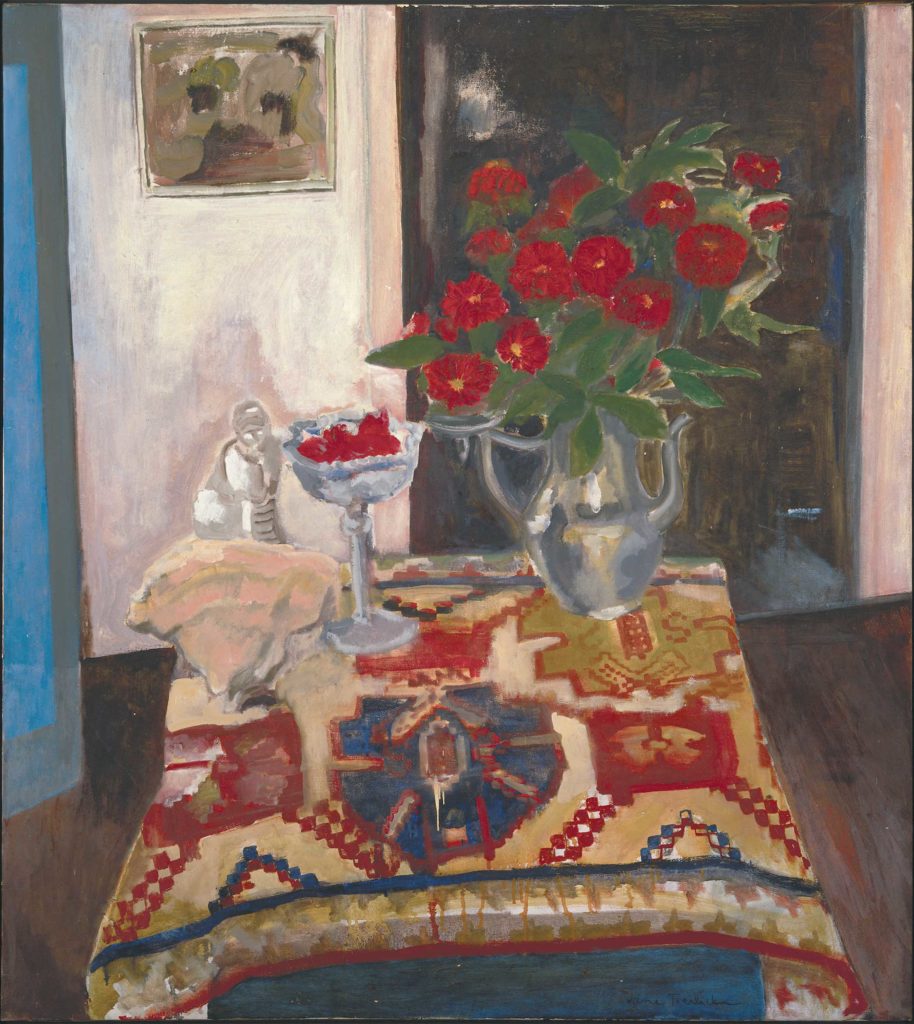
Featured amongst the vivid array of the artist’s cityscapes are the tough iron zig-zags of fire escapes, plumes of wispy gray emerging from ConEdison smoke stacks, the quintessential red-brown of New York City apartment blocks, and the almost-abstract configurations to which these elements amount. Essential to Freilicher’s oeuvre is the ongoing balance of what’s inside and what’s outside, oftentimes realized in the delicate shift of perspective between a simple floral arrangement and the complexity of the city behind it. In the works, these landscapes are seen as on rather than beyond the window, and as such, reside in the interior. And the flowers are, to a certain extent, anthropomorphic, taking the place of the figure, as in “Flowers in an Armchair.”
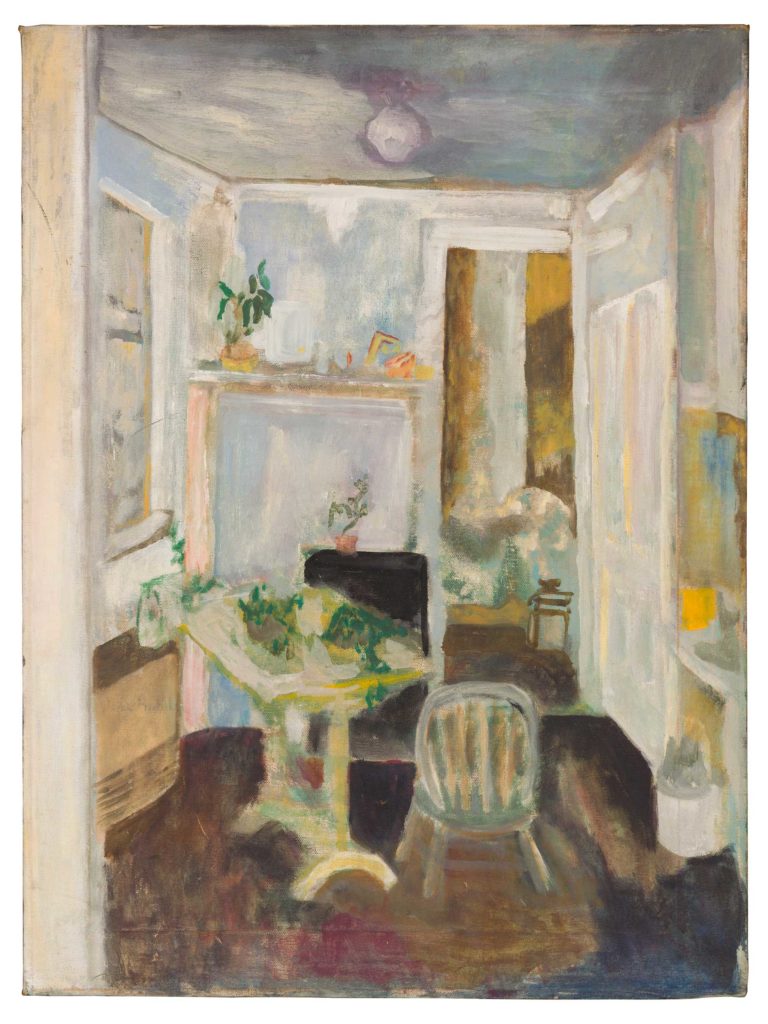
These kernels of Freilicher’s paintings — interiors, delicate light, drapery, the views of the city — were crystallized during this early period of her career. Freilicher returned tirelessly, and each time with renewed vitality, to the scenes within which she was absorbed: her home and studio. Those four walls and a window offered a fertile ground from which to paint, establishing the line of sight that eventually went on to characterize her later “Water Mill” paintings. Two paintings “Interior” (1953), and “Interior” (1954,) painted one year apart, illuminate this. Freilicher said of her work, “I’m quite willing to sacrifice fidelity to the subject to the vitality of the image, a sensation of the quick, lively blur of reality as it is apprehended rather than analyzed. I like to work on that borderline — opulent beauty in a homespun environment.”
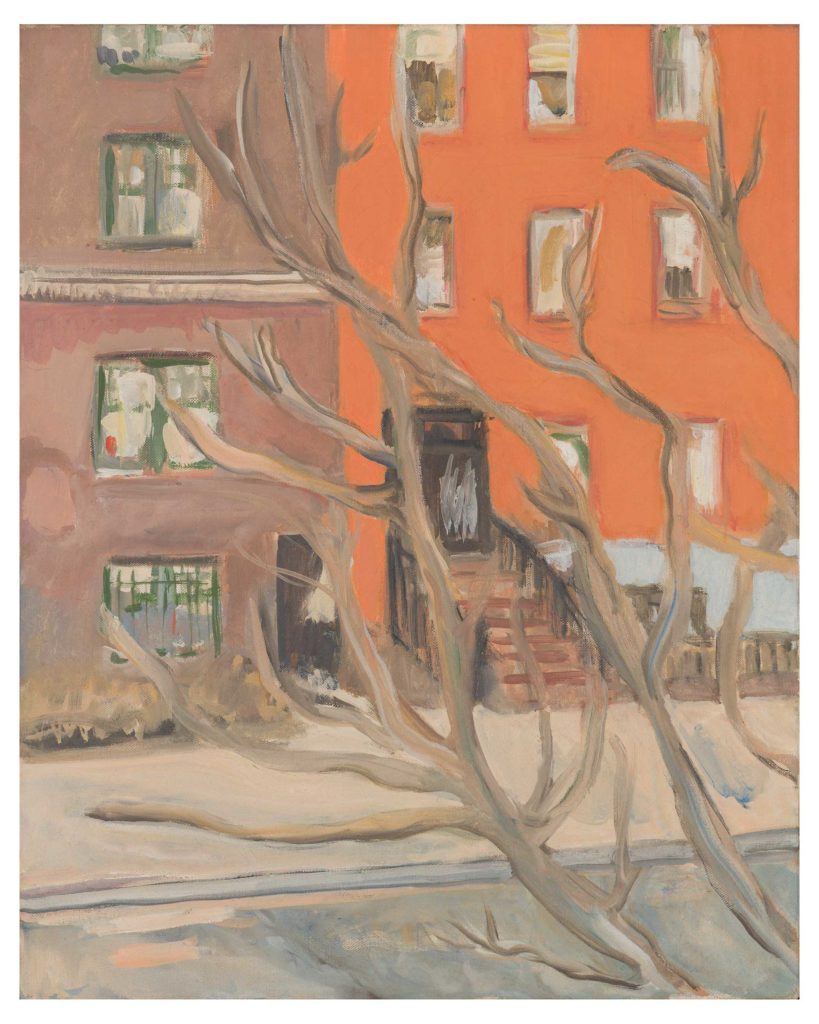
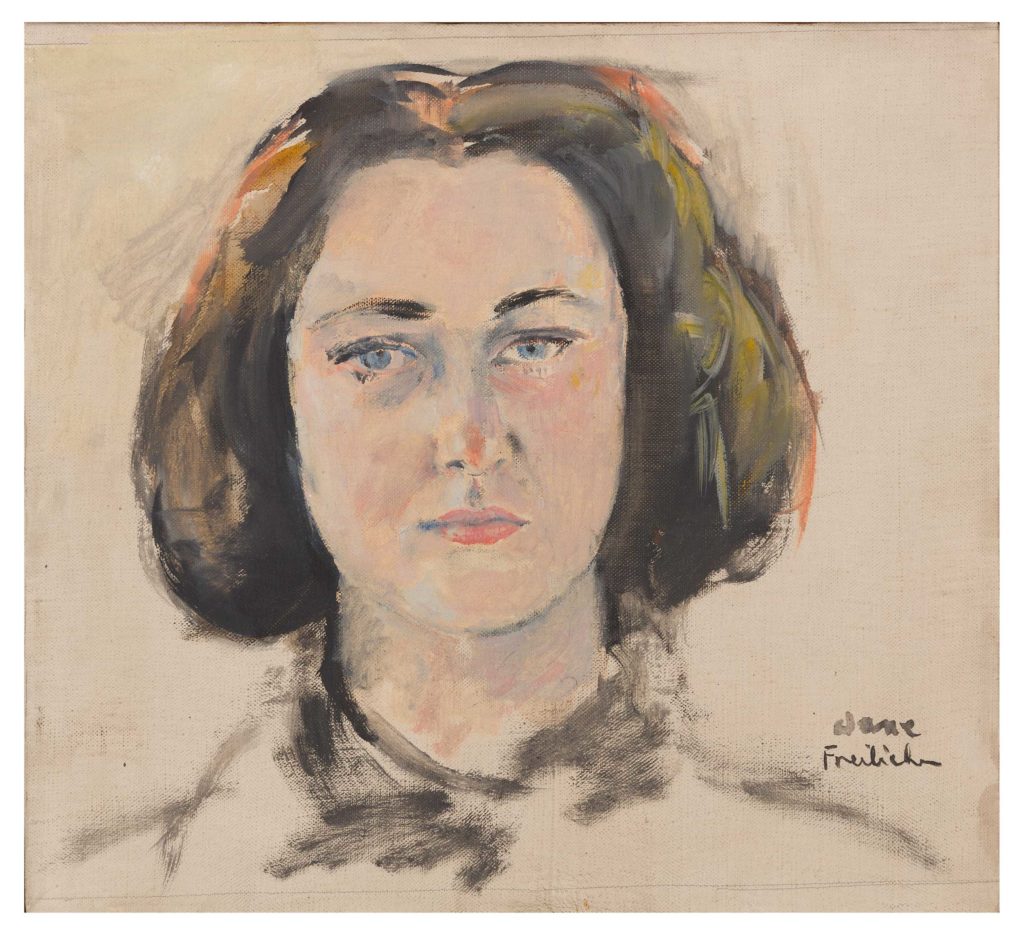
Sign up to receive Fine Art Today, the weekly e-newsletter from
Fine Art Connoisseur magazine.







